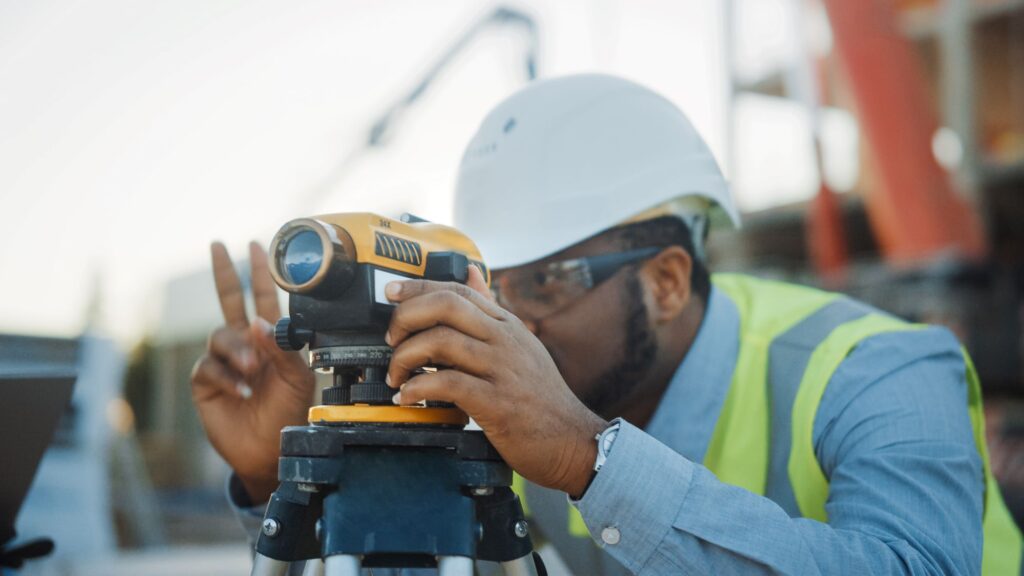Like residential property investors, commercial property investors can look forward to a steady income and benefit from capital appreciation. However, there are also important differences between the sectors, and buyers need to go into any transaction with their eyes open.
Below, some of the leading advisors in the field provide top tips on what investors need to know and how they should go about making their first purchase.
What is a commercial property anyway?
According to specialist mortgage broker Commercial Trust, a commercial property is “one that a business operates from.”
It lists the five main types of commercial property as follows:
- Offices – used for professional, commercial or bureaucratic work
- Retail – comprises shopping centres, supermarkets and retail stores
- Industrial – consist of warehouses and factories
- Leisure – restaurants, pubs, cafes, hotels and sports facilities
- Healthcare – hospitals, nursing homes, or specialist clinics
Under the UK’s planning system, all properties are divided up into different use classes and a change of use normally requires permission from the local planning authority. “The main reasons why commercial properties have different types of class in place is to make sure that a given geographic area does not include too many of the same type of property, such as too many pubs, and to determine which type of business can move into a property,” says Commercial Trust.
Clifton Private Finance adds: “When you purchase a commercial property, it is essential that you buy the property that fits your company need – a warehouse cannot be used as an office, and a pub is not a factory. While changing a property class is possible, it requires planning permission from the council, which can be denied. Buying a property without the right class or planning permission in place can be an extremely costly mistake.”
What are the advantages and disadvantages of buying a commercial property?

People typically buy commercial property either for use by their own business or to rent out to other businesses as an investment. In the case of the former, owning the property provides you with a significant investment for the future, provides you with full control of the property and gives you the option to turn the property into a profit-making asset in the future, according to Clifton.
“For many businesses, the choice between purchasing property and renting it has a lot to do with the stage of the business, with startups leaning heavily towards leasing and more established businesses enjoying the financial and managerial power to buy,” the company says. “This is not always the case, however, with many new businesses considering a property purchase as part of their initial business plan, and similarly, a significant number of well-established businesses preferring to be out of the property market.”
Clifton adds that a perceived disadvantage of commercial property leasing is that an occupier is beholden to their landlord when it comes to making alterations and so on. “However, this is usually untrue, with the property owner more than happy to have their tenants make significant improvements and changes to the building while they are using it,” it says.
“Of course, this does mean that often tenant businesses are ploughing their own capital into a property for the long-term benefit of the landlord. Indeed, this latter consideration is often the drive for many businesses to consider property ownership.”
When it comes to buying a commercial building as an investment, buyers typically purchase a property either to hold it in the long term and create a revenue stream from the rent or to improve the building and sell it on for a profit.
“Though in theory, these proposals are similar to those in the residential market, commercial property is a riskier investment, with the potential for higher profits alongside more complex rental and resale markets,” says Clifton. “Research and due diligence are essential for successful commercial property investment.”
‘Location, location, location’
It is a cliche, but location is just as important when it comes to commercial property as it is for residential. “My number one is location, location, location,” says Josh Phegan, a motivational speaker and educator specialising in real estate. “This never goes away and this is [about] looking at future infrastructure and what’s going to be happening in and around a particular area in terms of population trends.”

If, for instance, an area is set to benefit from new transport links, it can be expected that footfall will increase significantly. “Depending on what it is that you’re actually looking to buy, it is really important to think about the location, particularly around transport hubs,” says Phegan. “All sorts of things are going to impact on the future saleable value and, naturally, the future rentable value of a particular property.”
Clifton adds: “Selecting the wrong location for your commercial property can be a devastating and extremely costly mistake that can have an impact on your business growth for years. It is well worth seeking professional advice regarding the location and researching any factors that are of specific importance to your company.”
Finding the right property

Once a business has decided on a location, it can begin to focus on individual properties. An initial search can be done on Rightmove’s commercial property platform. The site lists many thousands of properties and allows users to refine their search in multiple different ways, including by size, price and the type of commercial property required.
It may also be that companies choose to use an agent even at this early stage to help with initial research and due diligence. Not only do commercial agents have intimate knowledge of their ‘patch’, they also have years of experience of advising clients on their property requirements and will be able to manage expectations on what is realistic within any given budget.
Many commercial agents will be members of the Royal Institution of Chartered Surveyors (RICS) or Propertymark. This means they are regulated and adhere to strict rules on conduct and continuing professional development.
Understand what you’ll be able to do with a property
A property may look ripe for repurposing, but this isn’t always straightforward. Potential purchasers need to understand what they will be allowed to change and, in all likelihood, will require professional advice from, for instance, a planning consultant. “How long is it going to take to get any future plans through the council and how long will it take to redevelop that particular site over time?” Asks Phegan.
“This is always [about] betting against what’s actually happening [in the] market, what’s happening to interest rates, what’s happening to industry trends, what’s actually happening to return expectations of future investors that could go to buy that particular property that you’re going to be taking to market in time. If you’re unable to do the development, are you able to hold that property over the long term?”
Consider the future of the market
Whatever commercial sector a buyer is considering, it is important to think about how occupiers are likely to fair over time as this will obviously have implications for both rental and capital values. “Where do you see the future of the industry going?” asks Phegan. “What types of properties are going to be really in demand?”
He adds: “What we have learned over a period of time is there are certain asset classes that do well for a very long period of time. There are other asset classes that need incredible amounts of renewal in order to bring them back to speed for what the expectations of future tenants will actually be. The future of a property is all about understanding that you could actually have it as a great asset for 20 years, and then in the 20th year, move to redevelopment of that particular site.”
What are the funding options?
The majority of buyers do not have the cash in the bank required to purchase a commercial property outright and will need to consider some sort of financing arrangement. “Commercial mortgages are the most common funding option for buying a commercial property,” according to Commercial Trust.
“Commercial mortgages effectively work similarly to residential mortgages, as you have to pay the deposit first, and afterwards, you make monthly payments. With a commercial mortgage, these can be either capital and interest or interest-only. It is possible to borrow long-term, as terms typically go up to 25 years. Your age at the end of the term may affect how long you can take out a commercial mortgage.”
In addition, it is important to understand that there are two different types of commercial mortgage depending on whether you intend to use a property for your own business use (owner-occupier commercial mortgage) or rent it out to another business (commercial investment mortgage). “Ensuring you get the right product for your circumstances is imperative,” says Commercial Trust.
In the right circumstances, buyers may want to consider other options, such as a bridging loan, which are typically short-term and fast to arrange. “It’s a financing method that enables you to buy a commercial property before long-term funding is arranged or cash becomes available,” according to Commercial Trust.
“Bridging loans for property developers allows those who need to renovate a property before it can be mortgaged to bridge the financial gap between doing work on the property and exiting long-term finance, or between one property transaction and another. Bridging is a viable option if you need to purchase a property and convert it to commercial, where work needs to be done to it or where completion deadlines are short.”
Auction finance may also be a possibility. This allows a buyer to complete a transaction at an auction, normally using a pre-arranged bridging loan that enables you to pay in full within the normal 28-day period following the fall of the hammer. “By arranging funds before the auction, you will know that you can definitely secure funding, what your exact budget is when bidding and what property specification your lender will finance,” says Commercial Trust. “Remember, though, the loan cannot be used to pay the deposit and fees. You will need your own funds for this.”
The need for professional advice

According to Phoenix and Partners, buyers are well-advised to seek professional advice from multiple parties. “Commercial real estate is a complex legal domain,” it says. “Professional insight is an absolute must. There is simply no way that you can take on a commercial investment project without the assistance of solicitors and surveyors at least.”
It adds: “On the financial side, it’s certainly wise to liaise with an independent financial advisor when it comes to comparing financing options. When you delve into financing like bridging loans then there’ll be more options and risks to weigh up. It’s hard to account for investment risk without performing a rigorous economic analysis of the target asset.”
Enlisting a RICS Chartered Surveyor is also crucial for the due diligence process, says Phoenix. “Your survey may alter the perception of the building, especially if major structural flaws are discovered. This could enable you to save vast quantities of money, or even save your property from catastrophic issues down the line.”
How are purchases structured?
Once you have decided on a property, the actual purchase process becomes rather more formal and requires professional advice on multiple fronts. Firstly, the purchase price must be properly agreed with the seller, which is typically done through a commercial agent. “The agent would then prepare a memorandum of sale, which sets out the main points of transaction,” says Commercial Trust. “Even though it is not legally binding, it is usually referred to for legal drafting and should be accurate.”

Next, solicitors need to be officially instructed. “Your solicitor will send their terms of business and ask for your identification documents and they may ask for money on account for property searches and land registry documents,” advises Commercial Trust.
“The contract package will be sent by the seller’s solicitor to your solicitor. It usually includes a draft sale contract, title documents, Energy Performance Certificate (EPC) and replies to Commercial Property Standard Enquiries (CPSEs). CPSEs are general enquiries raised on the purchase of a commercial property.”
Following this stage, your solicitor will carry out due diligence checks on the property. These will be in line with your requirements, but also with your lender’s. Assuming nothing to break the deal is discovered, the solicitor will then “review the terms of the mortgage and any other security documentation that has been provided by the lender,” according to Commercial Trust. “Your solicitor will also need to respond to any lender’s requirements, if applicable.”
Finally, the terms of sale and transfer deed need to be negotiated, again involving both sides’ solicitors, and contracts exchanged. “At completion, your solicitor will receive the funding from your lender,” says Commercial Trust. “If it is a purchase, they will send the remaining balance to the seller’s solicitor, the transfer deed and mortgage will be completed and the legal title in the property passes on to you.”
Sources: